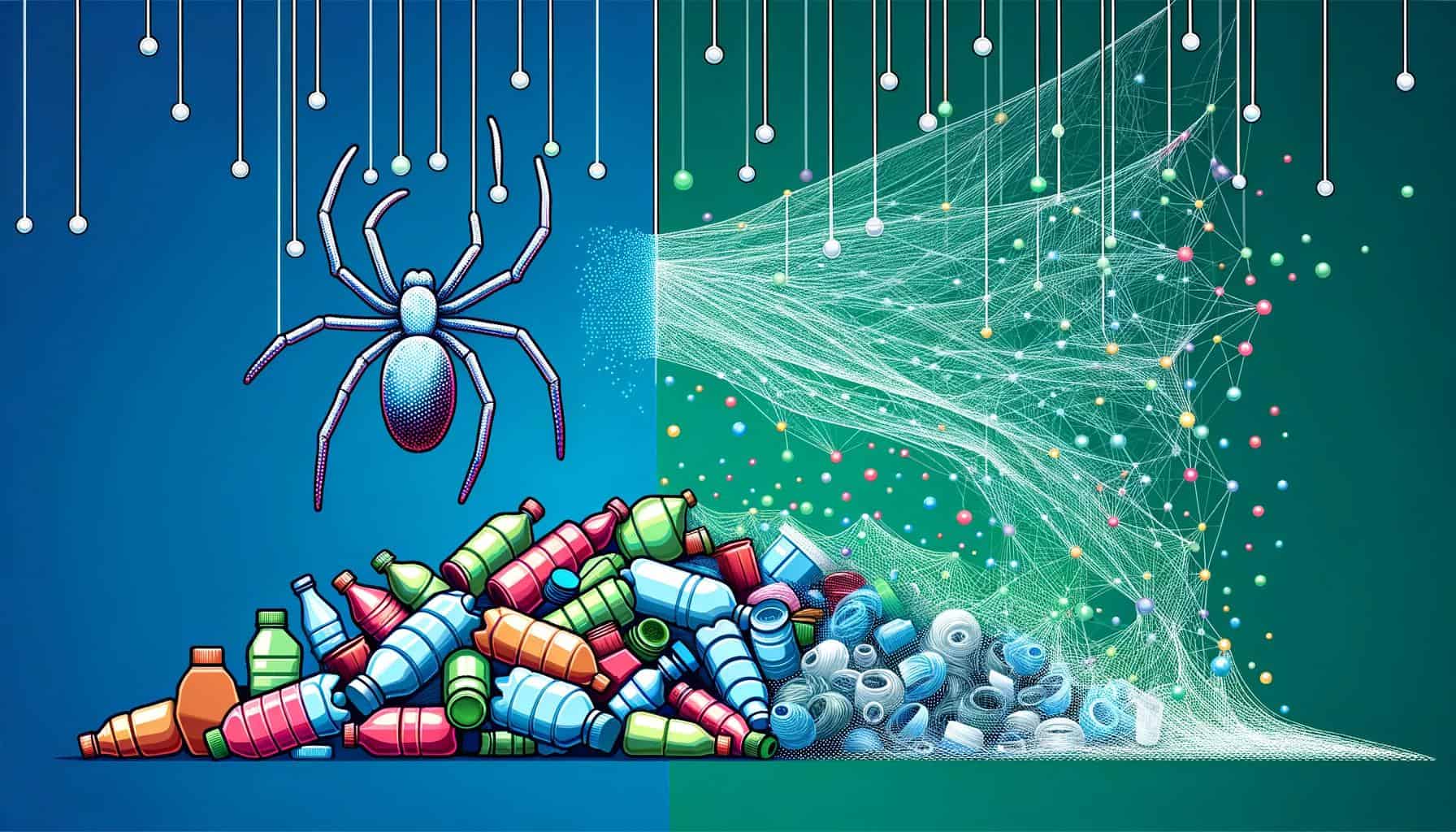
Scientists have engineered bacteria capable of converting plastic waste into a versatile and eco-friendly form of spider silk. On the one hand, scaling this method up could address the growing global challenge of plastic pollution. On the other hand, it also provides an extremely valuable material.
Gram for gram, certain types of spider silk are five times stronger than steel. And, spider silk isn’t just strong; it’s incredibly flexible. It can stretch up to five times its original length without breaking.
Plastic waste to silk
Polyethylene plastic, commonly used in single-use items, has long been a bane for the environment. It can persist for centuries before it degrades — and even this timeline is uncertain. Researchers at Rensselaer Polytechnic Institute looked for a solution in the form of Pseudomonas aeruginosa, a bacterium with a natural appetite for this kind of plastic. To their surprise, they found that these bacteria not only consume plastic but also transform it into something extraordinary.
The process begins with the depolymerization of polyethylene, breaking it down into a form the bacteria can consume. This is similar to how humans have to cut and chew their food so it can be digested inside the gut. Once “fed” with this plastic-derived wax, the bacteria ferment it, akin to how yeast transforms sugars in bread-making. After 72 hours of fermentation, the resulting silk protein, reminiscent of cotton balls, can be further processed into usable forms.

“Spider silk is nature’s Kevlar,” said Helen Zha, an assistant professor of chemical and biological engineering and one of the scientists leading the project. “It can be nearly as strong as steel under tension. However, it’s six times less dense than steel, so it’s very lightweight. As a bioplastic, it’s stretchy, tough, nontoxic, and biodegradable.”
“It’s a low-energy, non-toxic method,” Zha adds. “Nature’s best chemists couldn’t achieve this transformation, but these bacteria can.”
While this breakthrough is promising, scaling production up for commercial purposes remains a challenge. “Our next steps involve optimizing the process,” says Professor Mattheos Koffas. The team’s ambition is to refine this bacterial alchemy, turning a vision of sustainable material production into a reality in the commercial market.
“This study establishes that we can use these bacteria to convert plastic to spider silk. Our future work will investigate whether tweaking the bacteria or other aspects of the process will allow us to scale up production,” Koffas said.
The findings appeared in the journal Microbial Cell Factories.









